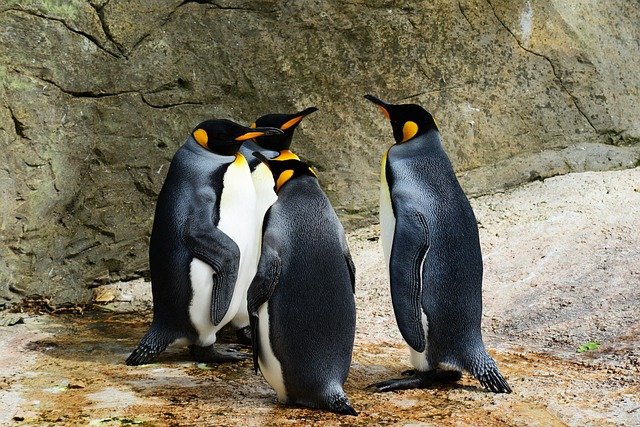
Unraveling the Mysteries of Penguin Social Behavior: How These Flightless Birds Communicate
Penguins, the charming flightless birds of the Southern Hemisphere, have long fascinated researchers and wildlife enthusiasts alike. Their distinct waddling gait, tuxedo-like appearance, and unique social structures make them a subject of interest in the study of animal behavior. In this post, we will explore the intricate social behavior of penguins and how they communicate with one another in their often harsh environments.
The Social Structure of Penguins
Penguins are highly social animals that typically live in large colonies, sometimes consisting of thousands of individuals. These colonies provide various benefits, including enhanced protection from predators, increased foraging success, and improved breeding conditions. Within these colonies, penguins exhibit a range of social interactions, from cooperative behaviors to complex hierarchies.
Types of Social Interactions
Vocal Communication
Penguins rely heavily on vocalizations to communicate. Each species has a unique set of calls used for various purposes, such as attracting mates, signaling danger, or identifying individuals. For example, Emperor Penguins produce a distinctive trumpeting call that can be heard over long distances, allowing mates to locate each other in the dense colonies.Visual Signals
In addition to vocalizations, penguins use body language and visual displays to convey information. This can include posture, flapping of wings, and specific movements during courtship rituals. For instance, during mating season, male penguins may engage in elaborate displays, puffing out their chests and bowing to attract females.Physical Touch
Physical contact plays a vital role in penguin social interactions. Penguins often engage in mutual preening, which helps strengthen social bonds and maintain feather health. This behavior is particularly common among mates and within family groups, fostering a sense of closeness and cooperation.
The Role of Communication in Breeding
Communication is crucial during the breeding season, as penguins must identify their mates and coordinate nesting activities. Many species, such as the Gentoo Penguin, exhibit strong pair bonds, and vocal recognition is key to maintaining these relationships. Research has shown that penguins can recognize their partner's calls, even amidst the cacophony of a bustling colony.
Nesting and Parenting
Once penguins have mated, they engage in cooperative parenting. Both parents share responsibilities in incubating eggs and feeding chicks. Effective communication is essential during this period, as parents must coordinate their efforts to ensure the survival of their young. For example, they may use specific calls to signal when it's time to switch roles in caring for the chicks.
Challenges in Communication
While penguins have evolved sophisticated methods of communication, they also face challenges in their social interactions. Environmental factors, such as noise from waves or ice cracking, can hinder vocal communication. Additionally, the dense colonies can create a chaotic atmosphere, making it difficult for individuals to locate their mates or chicks.
Conclusion
The social behavior of penguins is a fascinating area of study that highlights the complexity of communication in the animal kingdom. Through vocalizations, visual signals, and physical interactions, these remarkable birds navigate their social worlds, ensuring the survival of their species in some of the most extreme environments on Earth. As researchers continue to unravel the mysteries of penguin communication, we gain deeper insights into the lives of these captivating creatures and the intricate social structures that define their existence.
For more information on penguin behavior and communication, consider exploring the latest research articles or visiting a local aquarium or wildlife reserve to observe these incredible birds in action!
